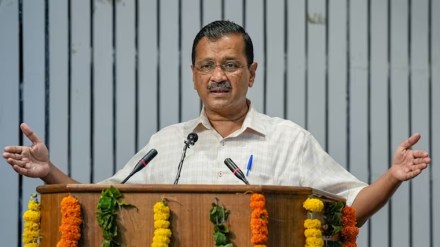Delhi Chief Minister and Aam Aadmi Party (AAP) supremo Arvind Kejriwal on Thursday skipped the fourth summons issued by the Enforcement Directorate (ED) for questioning in connection with the investigation into a money laundering case related to the Delhi excise policy scam.
The Aam Aadmi Party (AAP) leader has replied to the summons, saying that he won’t be able to appear before the agency.
Hitting out at the ED, AAP stated, “BJP aims to arrest him and to stop him from campaigning in Lok Sabha elections. ED has written that Arvind Kejriwal is not an accused, so why summons and arrest? Corrupt leaders go to the BJP, and their cases are closed. We have not committed corruption, none of our leaders will join BJP.”
Also Read: Kejriwal likely to skip 4th ED summons in excise policy case, to leave for Goa today
Kejriwal is scheduled to leave for a three-day tour of Goa alongside Punjab Chief Minister Bhagwant Mann today.
The visit to Goa is planned in light of the upcoming Lok Sabha elections, during which Kejriwal intends to engage with party workers and potentially address a public rally, his office stated.
At a Delhi government event on Wednesday to see off elderly pilgrims travelling to Gujarat, Kejriwal was asked about the fresh summons. “We will do whatever needs to be done according to the law,” he had replied.
Kejriwal has skipped three previous summons — on November 2, on December 22, and on January 3 — calling them “illegal and politically motivated”.
Also Read: ‘Nothing found on me, BJP after AAP leaders’: Kejriwal on ED summons
ED issued its fourth summons on January 13 — a day after AAP announced Kejriwal’s three-day Goa tour — leading to Delhi AAP convenor Gopal Rai accusing the central agency of issuing the summons in a bid to stop Kejriwal from campaigning.
The Delhi excise policy was scrapped following allegations of corruption. The Central Bureau of Investigation (CBI) took over the case following a recommendation by Lieutenant Governor VK Saxena. Thereafter, the ED registered a case under the Prevention of Money Laundering Act (PMLA) to probe the money trail.
